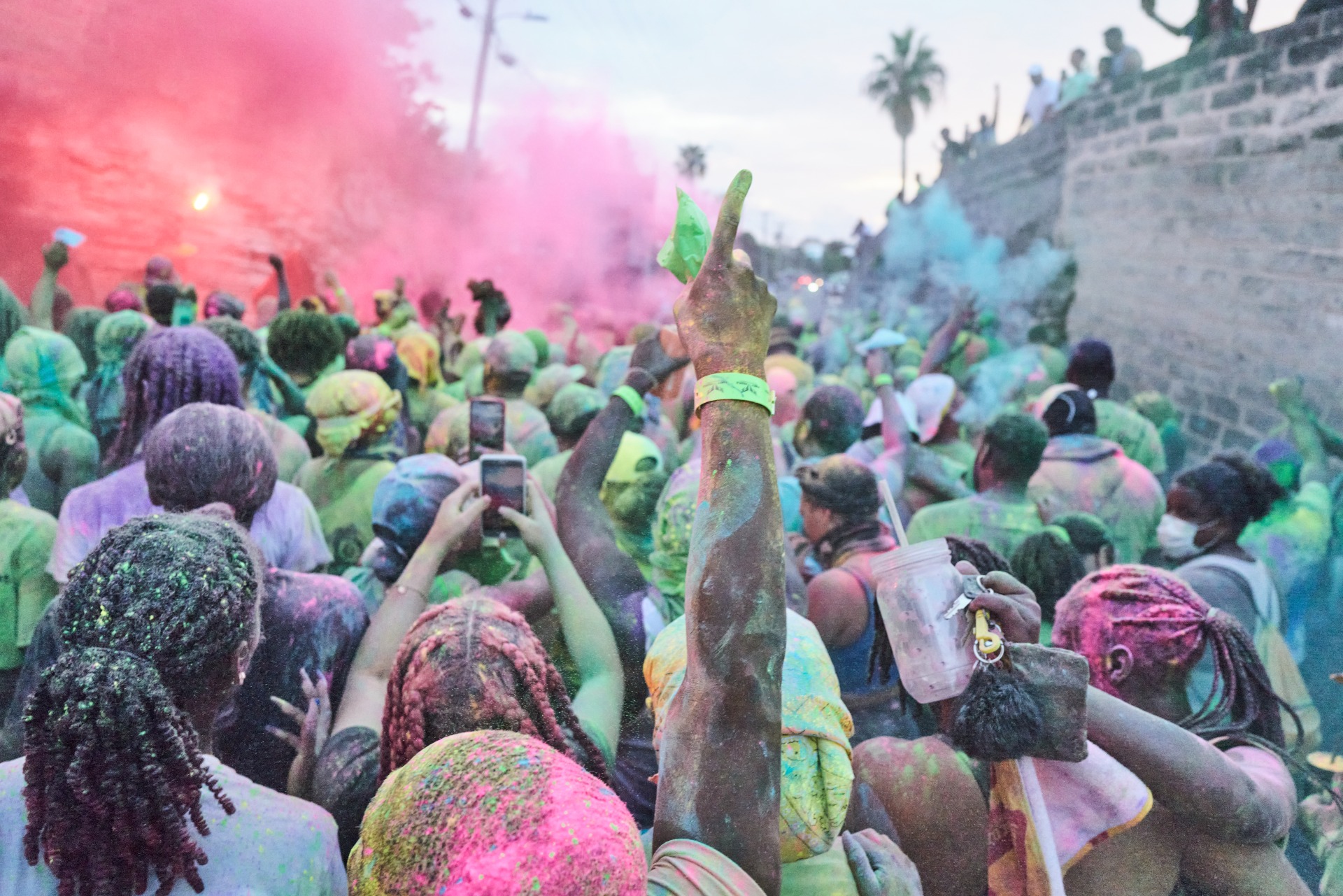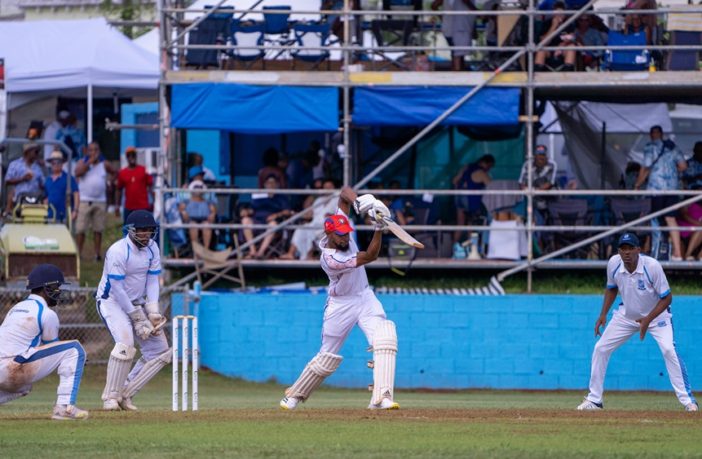Every August, Bermudians and visitors from across the globe gather for Cup Match, a national holiday that honors the country’s Emancipation Day—the day enslavement was abolished in Bermuda on August 1, 1834.
EBONY arrived to witness the second day of celebration, known as Mary Prince Day. Seated in the private Camp Bermudaful bungalow alongside Nigerian-American actor and singer Rotimi, we enjoyed rum swizzles—the drink of choice during the match—and tried to wrap our heads around the intricacies of the game of cricket (we were not successful).
Alongside thousands who had gathered at St. George’s Cricket Club, which hosted Cup Match this year, we watched as Somerset (from the West Side) and St. George’s (from the East Side) engaged in a century-old rivalry that started in 1901. Played over two days, this year ended in a draw, which means that reigning champ Somerset maintains the coveted silver cup.
After the game, we spent an evening inside St. Fort Catherine in St. George’s, the largest fort on the island, and danced under the stars at the official after-party.
Kristin White, Bermuda historian and owner of Long Story Short. Image: Amanne Media
Our celebration of freedom continued the next day as we sat down with Bermudian-born historian Kristin White, owner of Long Story Short bookstore in St. George’s, who explained why this weekend is so important in Bermuda’s history.
“Every year on August 1, Black people withdrew their labor as a way of celebrating emancipation,” she declared. “The first cricket game played in Bermuda was in 1846.”
Over the next few decades, families gathered and held picnics while watching the games until a formal match featuring the two existing teams was established in 1901. The following year, members of the Friendly Societies and Lodges, who ran the matches, raised funds to purchase a silver cup trophy that is still brought out to salute the winning team today.
White also revealed the story of Mary Prince. “She was born into slavery on the island and moved around the world with her enslavers, which was very unique.” While in England, Prince escaped and convinced the anti-slavery society to write down the story of her life, which was published in 1831. “In the first year, it has to be reprinted three times. Many people wanted to read it.”
Speaking of the atrocities of enslavement, The History of Mary Prince is the first published account of enslavement related by a Black woman and it was instrumental in the campaign to abolish enslavement in Bermuda. “She’s the first woman of any race to present a position to the British Parliament,” White added. In 2020, Bermuda officially changed the second day of Cup Match to Mary Prince Day, in honor of her braveness.

Bacchanal Run. Image: BTA.
Nothing could prepare us for the excitement and exhilaration of the Bacchanal Run, which happened the following day. As Afrobeats and Soca music punctuated the air, we ran down the streets covered in the paint, powder and water doused on us from every direction. But we didn’t mind (we had come prepared). We fully understood how important it is for all Bermudians to run through the streets uninhibited.
We heard the chant, “Who are we? We are free,” as proud Black and brown people danced in the streets and in Bernard Park until the wee hours in honor of their freedom.
And for a night, we felt a true sense of freedom too.
Learn more about Emancipation Weekend activities and Bermuda’s history at gototbermuda.com.


